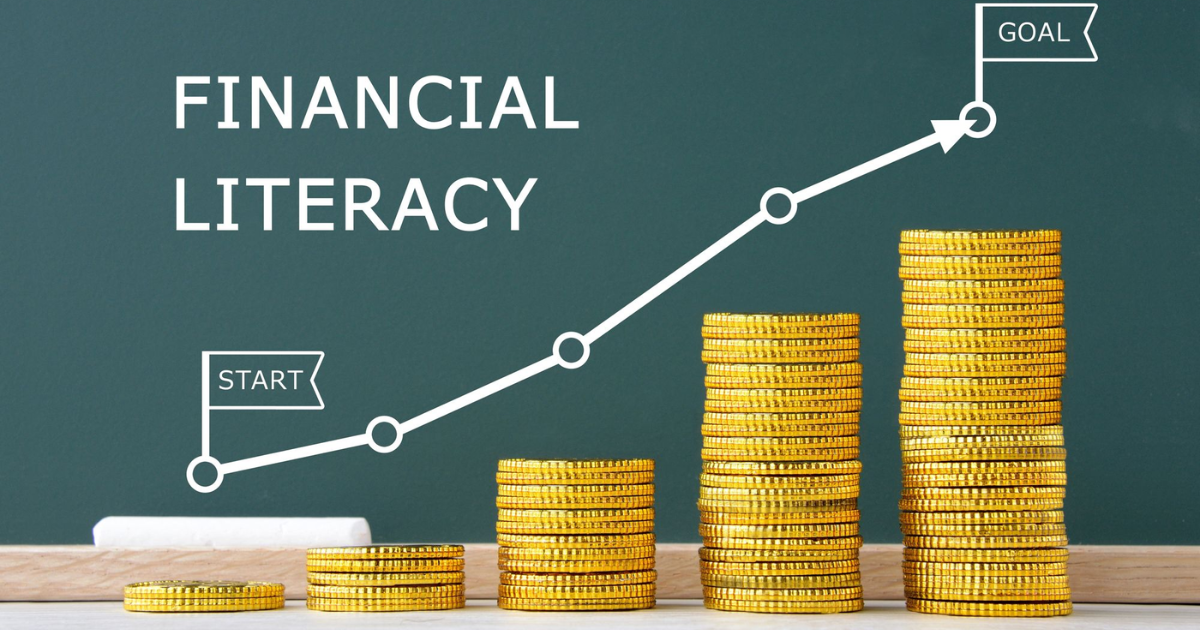In today’s complex financial world, managing money effectively is more important than ever. Yet, many people struggle with financial illiteracy—a lack of knowledge and skills to make informed financial decisions. This gap affects individuals, families, and even entire economies. Understanding what financial illiteracy is, why it matters, and how to overcome it can empower you to build a secure financial future.
What Is Financial Illiteracy?
Financial illiteracy refers to the inability to understand and use various financial skills, including personal financial management, budgeting, and investing. It means lacking the essential knowledge to make sound financial decisions.
Common Signs of Financial Illiteracy
-
Difficulty creating or following a budget
-
Misunderstanding credit and loans
-
Falling into excessive debt
-
Inability to save or invest money
-
Lack of awareness about financial products
-
Difficulty planning for retirement or emergencies
Why Financial Literacy Is Important
Financial literacy is the foundation of good money management. Without it, people face numerous challenges that can affect their quality of life.
Impact on Individuals
-
Poor Financial Decisions: Without knowledge, people might take on high-interest debt or make risky investments.
-
Stress and Anxiety: Money problems are a leading cause of stress and mental health issues.
-
Limited Opportunities: Financially illiterate individuals may miss opportunities for growth and wealth accumulation.
Impact on Families
-
Generational Poverty: Financial illiteracy can perpetuate cycles of poverty within families.
-
Financial Dependence: Lack of skills may result in dependence on others or social welfare.
-
Reduced Quality of Life: Financial struggles affect housing, education, and healthcare access.
Impact on Society
-
Economic Instability: Poor financial decisions at a large scale can destabilize economies.
-
Increased Debt Levels: Higher rates of unpaid debts and bankruptcies strain financial institutions.
-
Greater Inequality: Financial illiteracy widens the wealth gap.
Causes of Financial Illiteracy
Several factors contribute to widespread financial illiteracy:
Lack of Education
Many schools do not include comprehensive financial education in their curricula, leaving students unprepared for real-life financial decisions.
Complexity of Financial Products
Financial products like loans, credit cards, and investments can be confusing, discouraging people from understanding them.
Socioeconomic Factors
People from lower-income or marginalized groups often have less access to financial education resources.
Behavioral Factors
Psychological biases, impulsive spending, and procrastination can worsen financial illiteracy.
Common Financial Mistakes Due to Illiteracy
Overspending and Debt
Many people spend beyond their means, relying heavily on credit cards and loans without understanding interest implications.
Poor Savings Habits
Without budgeting or goal-setting, saving money becomes challenging.
Neglecting Retirement Planning
Many underestimate how much they need to save or delay planning altogether.
Falling for Scams
Lack of financial knowledge increases vulnerability to fraud and scams.
Inadequate Insurance Coverage
Not understanding insurance can lead to insufficient protection against emergencies.
How to Improve Financial Literacy
Improving financial literacy is possible through education, practice, and access to resources.
Financial Education Programs
Schools, community centers, and online platforms offer courses and workshops on budgeting, investing, and more.
Using Technology
Apps and online tools can help track spending, create budgets, and learn about finances interactively.
Reading and Research
Books, blogs, podcasts, and videos are accessible ways to gain knowledge.
Seeking Professional Advice
Financial advisors or counselors can provide personalized guidance.
Practice and Discipline
Regularly reviewing your finances and making informed choices build good habits.
The Role of Governments and Institutions
Governments and institutions can help by:
-
Including financial education in school curricula
-
Providing accessible public resources and tools
-
Regulating financial products for transparency
-
Running awareness campaigns to reach underserved populations
Benefits of Financial Literacy
-
Better Money Management: Control over income and expenses.
-
Reduced Debt: Smarter borrowing and timely repayments.
-
Increased Savings: Ability to build emergency funds and invest.
-
Empowered Decisions: Confidence in making financial choices.
-
Improved Quality of Life: Financial stability leads to better well-being.
Challenges in Promoting Financial Literacy
-
Diverse populations with varying needs
-
Overcoming distrust in financial systems
-
Keeping up with rapidly changing financial technologies
-
Ensuring resources reach vulnerable groups
Financial Literacy and the Future
As financial systems grow more complex and digital, financial literacy becomes even more critical. Embracing continuous learning and adapting to new tools and regulations is necessary to stay financially secure.
Also Read : Why Financial Education Should Be Part Of Every Curriculum ?
Conclusion
Financial illiteracy is a significant barrier that prevents many people from achieving financial stability and growth. It affects individuals, families, and society at large. However, with concerted effort through education, access to resources, and personal commitment, financial literacy can be improved. Understanding money, credit, savings, and investments empowers you to make smarter decisions, avoid pitfalls, and create a secure financial future. Everyone benefits when financial literacy becomes a priority.
FAQs
1 What is financial illiteracy?
Financial illiteracy is the lack of knowledge and skills to manage money effectively.
2 Why is financial literacy important?
It helps individuals make informed decisions, avoid debt, save, invest, and plan for the future.
3 How can I improve my financial literacy?
Take courses, read books, use budgeting apps, seek advice, and practice managing your money.
4 What are common signs of financial illiteracy?
Overspending, accumulating debt, not saving, and misunderstanding financial products.
5 How does financial illiteracy affect society?
It contributes to economic instability, higher debt levels, and greater wealth inequality.


